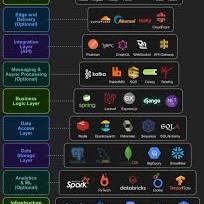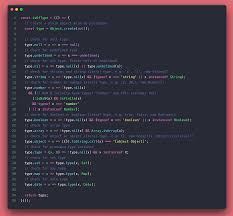Mastering the Art of JavaScript: Building Dynamic Web Experiences
The Power of JavaScript: A Versatile Language for Web Development
JavaScript is a dynamic programming language that is widely used for creating interactive and dynamic content on websites. Originally developed by Brendan Eich in 1995, JavaScript has evolved into one of the most popular languages for web development.
One of the key strengths of JavaScript is its versatility. It can be used both on the client-side and server-side, making it a powerful tool for building full-stack web applications. With JavaScript, developers can create responsive and interactive user interfaces that enhance the overall user experience.
JavaScript is supported by all major web browsers, making it a universal language for web development. Its flexibility allows developers to add functionality to websites, such as form validation, animations, and dynamic content loading, without the need to reload the entire page.
Furthermore, JavaScript has a vast ecosystem of libraries and frameworks that simplify and accelerate the development process. Popular libraries like jQuery and frameworks like React and Angular provide developers with ready-made solutions for common tasks, enabling them to build robust web applications more efficiently.
In addition to front-end development, JavaScript is also used in server-side programming with platforms like Node.js. This allows developers to use a single language across the entire stack, streamlining development and maintenance processes.
As technology continues to evolve, JavaScript remains at the forefront of web development due to its adaptability and versatility. With its rich features and extensive community support, JavaScript continues to empower developers to create innovative and engaging web experiences.
7 Essential Tips for Mastering JavaScript Best Practices
- Always use ‘var’, ‘let’, or ‘const’ to declare variables.
- Pay attention to data types to avoid unexpected type coercion.
- Use === and !== for strict equality and inequality comparisons.
- Remember that JavaScript is case-sensitive.
- Be mindful of asynchronous operations and use callbacks, promises, or async/await.
- Practice good code organization and modularization for maintainability.
- Regularly test your code and handle errors gracefully.
Always use ‘var’, ‘let’, or ‘const’ to declare variables.
When working with JavaScript, it is essential to always use ‘var’, ‘let’, or ‘const’ to declare variables. By explicitly declaring variables with these keywords, developers can ensure proper scope management and prevent unexpected behavior in their code. Using ‘var’ for variable declarations was common in older versions of JavaScript, but the introduction of ‘let’ and ‘const’ in ES6 offers more predictable scoping rules and immutability for constants. Adhering to this best practice not only enhances code readability but also helps maintain clean and organized codebases in JavaScript projects.
Pay attention to data types to avoid unexpected type coercion.
When working with JavaScript, it is essential to pay close attention to data types to prevent unexpected type coercion. Type coercion can lead to errors in your code and produce results that are not as intended. By understanding the data types in JavaScript and being mindful of how they interact with each other, developers can ensure that their code behaves predictably and accurately. Properly managing data types helps maintain the integrity of the code and prevents potential bugs or issues that may arise from unintentional type conversions.
Use === and !== for strict equality and inequality comparisons.
When working with JavaScript, it is recommended to use the strict equality operator (===) and strict inequality operator (!==) for comparisons. These operators not only compare the values of variables but also check their data types. By using === and !==, developers can ensure more precise and reliable comparisons in their code, avoiding unexpected type coercion that may occur with the loose equality operators (== and !=). This practice helps maintain code consistency and reduces the risk of logical errors in JavaScript programs.
Remember that JavaScript is case-sensitive.
When working with JavaScript, it is important to remember that the language is case-sensitive. This means that even small differences in capitalization can lead to errors in your code. For example, a variable named “myVariable” is not the same as “myvariable” in JavaScript. Being mindful of case sensitivity helps ensure consistency and accuracy in your coding practices, ultimately leading to more efficient and error-free scripts.
Be mindful of asynchronous operations and use callbacks, promises, or async/await.
When working with JavaScript, it is crucial to be mindful of asynchronous operations to ensure smooth and efficient execution of code. By utilizing callbacks, promises, or async/await, developers can manage asynchronous tasks effectively. Callbacks allow functions to be executed once a task is completed, while promises simplify handling asynchronous operations by providing a cleaner syntax for chaining multiple tasks. Additionally, async/await offers a more readable and synchronous way to work with asynchronous code, making it easier to manage complex workflows and maintain code clarity. By incorporating these techniques into JavaScript development, programmers can enhance the performance and reliability of their applications.
Practice good code organization and modularization for maintainability.
Practicing good code organization and modularization in JavaScript is essential for ensuring maintainability and scalability of your web applications. By breaking down your code into smaller, reusable modules, you can easily manage and update different parts of your application without affecting the entire codebase. This approach not only improves code readability but also makes it easier to debug and enhance functionality in the future. Embracing good coding practices from the beginning can save you time and effort in the long run, making your JavaScript projects more efficient and sustainable.
Regularly test your code and handle errors gracefully.
Regularly testing your JavaScript code and implementing effective error handling are essential practices in ensuring the reliability and stability of your web applications. By conducting thorough testing, you can identify and address potential issues early on, minimizing the risk of bugs and malfunctions. Additionally, handling errors gracefully by providing informative error messages and fallback mechanisms not only improves the user experience but also helps developers troubleshoot and resolve issues more efficiently. Embracing a proactive approach to testing and error handling in JavaScript development is key to delivering high-quality software that meets user expectations.









